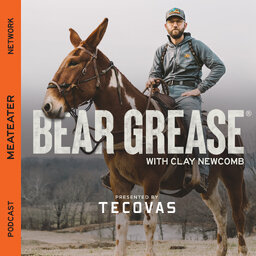 This Country Life
This Country LifeEp. 161: THIS COUNTRY LIFE - Trapping and TNT
Add beaver dam demolition to the list of off the wall things Brent has done so far in his tenure as a human. Seems only natural that someone who’s lived a life of adrenaline-filled danger would enjoy blowing up stuff. There’s something wrong with this guy. We’re fighting otters and dodging falling debris on this week’s This Country Life podcast.
Connect with Brent and MeatEater
MeatEater on Instagram, Facebook, Twitter, and Youtube
Shop Bear Grease Merch
